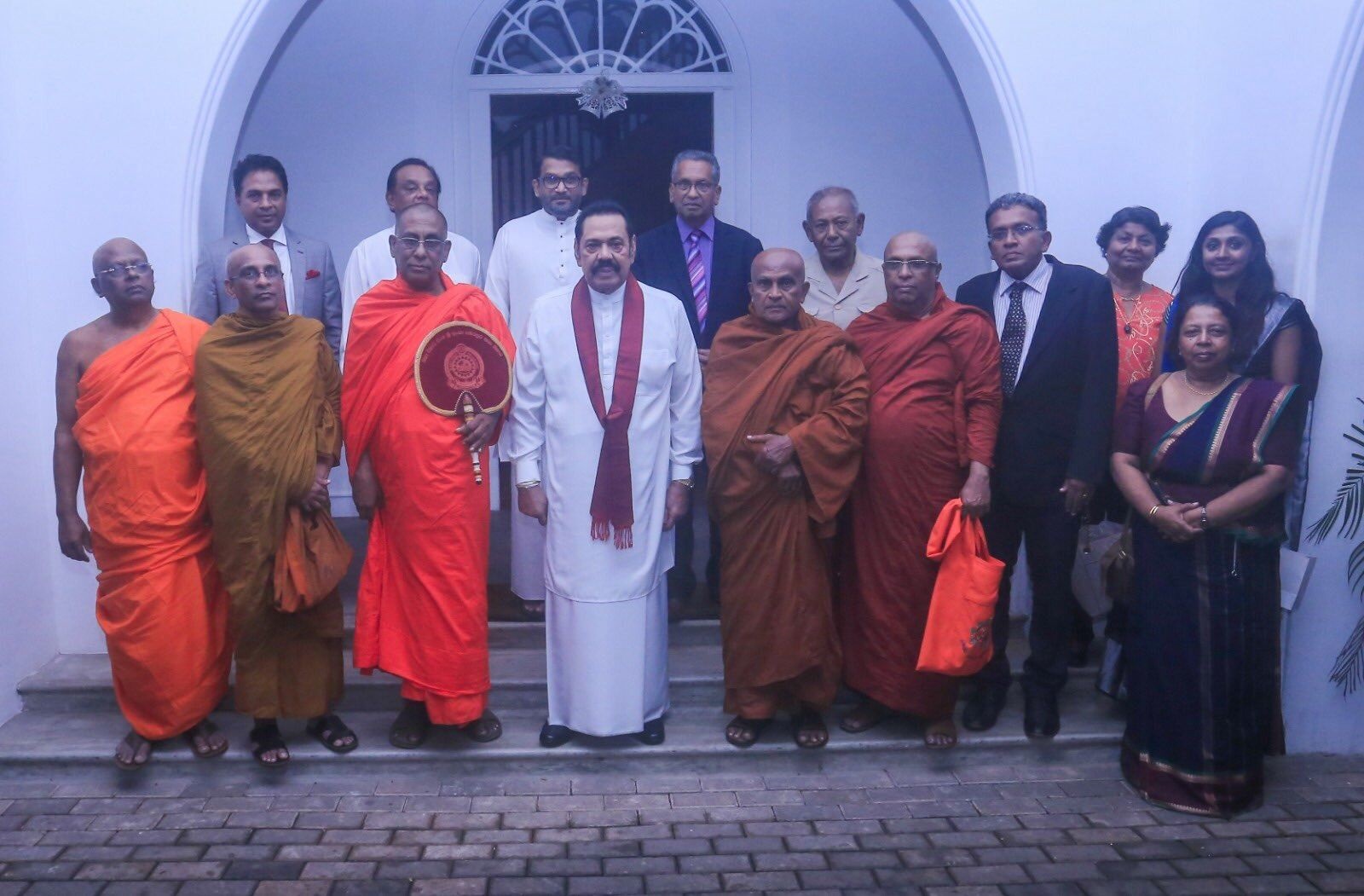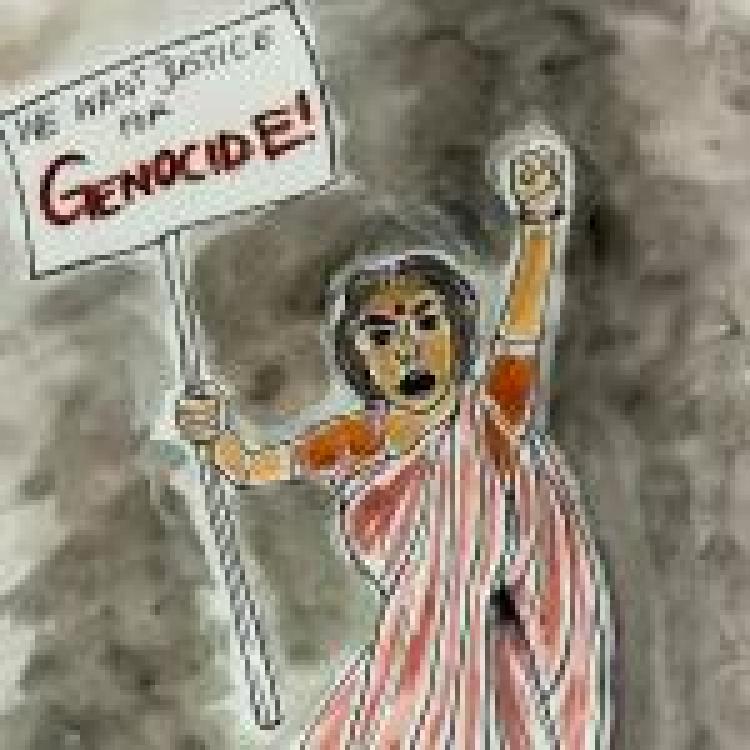
In the wake of widespread backlash to an initiative launched by the Global Tami Forum (GTF) and Canadian Tamil Congress (CTC) that saw them meet accused war criminal Mahinda Rajapaksa last week, the organisations have defended the meetings and refused to apologise.
In a five-page long press release sent out after criticism from across the North-East and diaspora, the GTF devoted one paragraph to the meeting with Rajapaksa, stating,
“Mahinda Rajapaksa was met as the leader of a party with substantial support base among the majority community and due to the fact that his support base was built with the assistance of Buddhist temples and as the primary means of securing and holding onto positions of power in the country”.
The umbrella organisation, consisting of just CTC and Norwegian Tamil Forum, did not apologise. The CTC instead shared their statement on their Facebook page.
The Tamil Guardian spoke to a range of Tamil Canadians across the political spectrum, and the country, all of whom expressed outrage at the meeting.
At least two members are known to have resigned from CTC’s advisory council, with a campaign calling on members and sponsors to “boycott, disinvest and isolate” the organisation.
Earlier today, a collection of 18 different Tamil Canadian student and youth organisations demanded a “public apology” and "the Board of Directors of both organizations to resign immediately" from the CTC and GTF.
The future of the organisation remains uncertain.
Read more: ‘A betrayal beyond belief’ - Tamil Canadians vent their fury at CTC after meeting with Rajapaksa
Despite the criticism, the latest statement justified meeting with Rajapaksa and another accused war criminal, former president Chandrika Kumaratunga, as part of a proposed “National Conversation”.
The GTF delegation also met with Sajith Premadasa, despite refusing to meet with the Sinhala politician in 2014. At the time, GTF spokesperson Suren Surendiran said that they would not meet with Premadasa, even “in private”.
“He is a racist," Surendiran said.
.jpeg)
Surendiran with Premadasa, who he labelled a "racist" in 2014.
The initiative and meeting with Rajapaksa sparked criticism from across the Tamil nation.
In the North-East, Tamil families of the disappeared, women’s organisations, students and clergy rejected it, accusing it of “totally ignoring Tamil grievances and the pain and suffering Tamils have undergone since independence”. Elected Tamil parliamentarians refused to meet with them, whilst dozens of diaspora organisations denounced the initiative, accusing it of undermining calls for an international justice and accountability process. This week, almost 70 Tamil civil society organisations and individuals released a statement that “totally rejects” the ‘Himalaya Declaration’ and called the initiative an “attempt to sustain the politics of tyranny”.
Dozens of Tamil diaspora organisations across the globe have also criticised the initiative.
The GTF however, seemed unperturbed by the criticism, stating,
“We are very much encouraged this initiative and the declaration articulating for pluralism, power devolution and accountability have received the approval and blessings from almost all important stakeholders in the Country, including from the chief prelates of the Buddhist chapters.”
“We have noted some of the criticisms aimed at this initiative from some Tamil groups in Sri Lanka and in the Diaspora,” the group admitted. “Our humble view is that these views are grossly misplaced.”
Though a number of Tamil parliamentarians, including from the Tamil National People’s Front (TNPF) and Tamil Eelam Liberation Organisation (TELO), refused to meet with the GTF on their tour of the island, the group said it was just a “handful”.
It went on to claim that it has received “support and encouragement” from “most of the key stakeholders in Sri Lanka, in the Diaspora and in the international community, which has "given us confidence to take this initiative forward with much vigour and purpose”.
The statement ended with a quote from the under-fire Tamil National Alliance leader R Sampanthan. Earlier this year, party spokesperson and a former close ally of Sampanthan, M A Sumanthiran revealed how he, and others in the party, had called on the 90-year-old politician to step down. Sampanthan had refused to do so.
The GTF, who met with the elderly TNA leader at his residence, however, and said,
"To quote the TNA Leader, Mr R Sampanthan, he said “We should have done this many years ago” He repeated the same at least three times. He told the Buddhist Clergy that “We are many years behind you.”"
See the full statement here.

.jfif)
